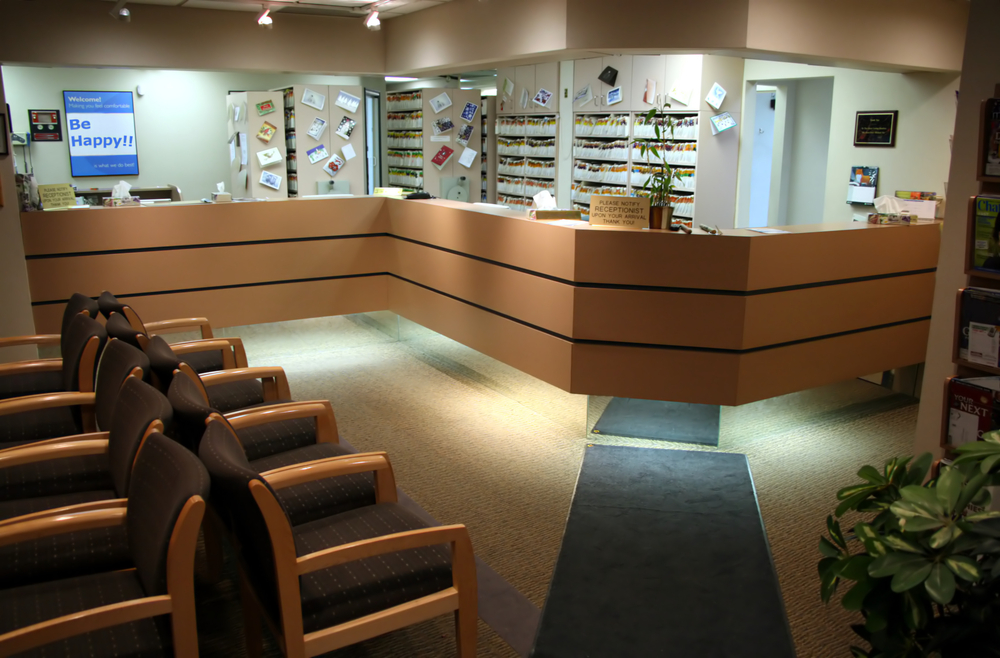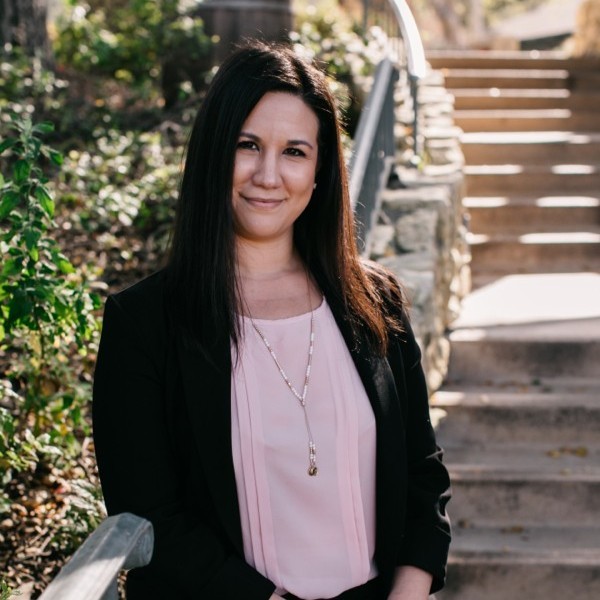Hi everyone. Chris Pistorius here again, with KickStart Dental Marketing. Today, I want to talk about something that’s very COVID-related in terms of dental practices. A lot of our clients ask us right now, “What’s the best way to show our potential new patients and our existing patients some of the safety precautions that we’re taking to make sure that our patients are safe when they come to see us?”. And unfortunately, most people or the general public don’t really realize that actually, a dental practice is probably one of the safest places to be during COVID, just because of all the extra precautions and measures that dental practices are taking.
Chris Pistorius:
So, I thought today it’d be a great idea to bring on Jordan Armstrong. He is the managing partner of Sky5 Cleaning, and they specialize in commercial cleaning in health care. They do a lot of cleaning with dental practices. So, Jordan, thanks so much for being a part of this today.
Jordan Armstrong:
Yeah. Thank you, Chris, for having me on.
Chris Pistorius:
Sure. I know you’re really busy right now because of all the COVID stuff going on. But again, I appreciate you coming on and just maybe help educate some of our listeners about what they can do specifically to help make sure that their practices are staying clean, and maybe give them some tips on the things that you do for your clients to make sure everything’s staying clean. So, why don’t you, first of all, just tell us a little bit about your business and how you do things?
Jordan Armstrong:
Sure. So, Sky5 Cleaning Systems, we are a commercial cleaning company. And as you mentioned earlier, we have a lot of clients within the healthcare spectrum, and we provide everything from janitorial services to specialty services, such as deep cleans. A lot of our services right now are related to COVID-19, going in there and disinfecting and providing a safe space for patients.
Chris Pistorius:
Okay. That’s great. I mean, I know that environmental things certainly will make businesses pivot and change, and being in the cleaning industry, I’m sure you’ve seen a lot of that change and pivot towards COVID-specific measures with healthcare facilities. I know that we were talking off-air, just before we started the recording here, about how you got pulled in late last night to go to a healthcare provider and do some emergency cleaning because of a breakout they had. Could you maybe detail what it is that you do specifically in healthcare when you go to a situation like that? What kind of products do you use? I mean, are there specific cleaning methods? How does that work?
Jordan Armstrong:
Sure. Yeah, so one of our clients had an outbreak, and because it’s a healthcare space, there’s a lot of regulations, a lot of procedures that you must follow. So, I’ll just give you an example. Last night we have to suit up, we have to make sure that we have all the necessary chemicals that adhere to the CDC guidelines. And when you walk in, you want to be as cautious as possible. And really, you’re covering the entire building. It’s not just the floor, it’s not just high touchpoints, but you ultimately want to fog… We use foggers and they’re very efficient, especially in certain facilities because of the fact that you can cover so much without getting all this expensive equipment, computers, all of that, wet. So, you want to make sure that you have the right equipment when you’re performing these services because they do vary from clinic to clinic.
Chris Pistorius:
Right.
Jordan Armstrong:
So, not only will we do that, but before we even do that, Chris, we like to start with a clean building. And I like to educate clients that before we can disinfect, the clinic must be clean. So, our janitorial service crew will perform a high level deep clean at that facility before we’ll have our disinfectant specialist team go in there and really focus on that.
Chris Pistorius:
I see. So, it’s important, I guess, that makes sense, you wanted to start with the clean surface and then you can go over and sanitize it from there with the fogging. On TV I’ve seen some of the videos of using those fogging machines. It’s interesting how those work. Are there any special chemicals or solutions that you’re using specifically for COVID, or is the stuff that you had been using for years previous to this, is that effective against COVID?
Jordan Armstrong:
Well, look, every vendor has its own different products that they use. The most important thing is to make sure that it adheres to the CDC guidelines and the other guidelines. But for us, we’ve tested so many different products. We wanted to go with something that’s stronger, that is able to disinfect at a 30-second touchpoint level, which was ultimately the reason why we gravitated to the product that we’re using. I’m happy to that with you outside of this.
Jordan Armstrong:
But we like to use that because, here’s the deal, some of those disinfectant chemicals, they have a dwell time of, say, 10 minutes. Well, that’s a lot of time if you have a big facility to cover. So, we want the highest quality product in the least amount of time. So, we want efficiency and that’s why… Look, we’re always looking to test out new products.
Chris Pistorius:
Yeah, no, I think it’s good to stay up on the trends. A client of mine brought this up the other time, they were curious, Chris, we’ve had our same cleaning crew for 15 years or so, and they were a little concerned that, does that cleaning crew do a good enough job of really protecting their office from COVID, in terms of at least cleanliness versus maybe using a commercial company like yours? I’m assuming that you guys probably have done a little bit, at least, special training on the COVID stuff. Maybe you could talk about that a little bit?
Jordan Armstrong:
Yeah. So that’s what we like to really pride ourselves on, is our training program. We’re part of ISS [inaudible 00:07:18], we’re members of all of these different organizations that… We want our staff to be educated. And we also want to help educate our clients. And so, we go through, we call it like a 15 step checklist of everything from general cleaning, all the way down to if a fire goes off, what is your role? What do you need to do? Because everything like that happens.
Jordan Armstrong:
And so, we want to put our staff in a position where they know how to do it, but more importantly, they know why they’re doing it. Because anyone can go in and just perform a cookie-cutter clean if you will. But you really might be hurting your client and even yourself, if you don’t know why you’re using that chemical or that tool. And so, for us, education is the foundation. We care about the safety of everyone.
Chris Pistorius:
Right. No, that makes a lot of sense. How often do you think, without saying there wasn’t an outbreak or any known cases from an office, how often should a practice go through deep cleaning like this? Is this a daily thing, weekly thing, monthly thing? What do you see?
Jordan Armstrong:
So, that’s an interesting question, because you’re going to get all of these different answers. I like to start with almost looking at it like Forensic Twain. I use that because it depends on the amount of traffic, how many people are really coming in? If it’s a smaller clinic, and you’re not seeing a lot of patients, maybe you don’t need a deep cleaning every single day. Maybe you just need it once a month, once every three months.
Jordan Armstrong:
What I always say, have a good janitorial daily clean. Your deep cleans can range from doing it a month or doing it quarterly. We have some clients that do that biannually. So, it really just depends. And then you have your massive high traffic clients where they might be disinfecting every week, could be daily, because of the vulnerability and other factors like that.
Chris Pistorius:
Right. No, that makes sense. Okay. Well, thanks, Jordan. I really appreciate all the information you’ve given us here. Anything else that you’d want to cover, or talk about in terms of how a dental practice could maybe stay clean if you will?
Jordan Armstrong:
Yeah. I would just say, make sure that your staff understands how important it is to, I know it sounds routine, but wash their hands, make sure they’re not cross-contaminated, and really step back and ask yourself, “Do we need to have maybe an expert come in and at least provide a consultation because maybe there are some things that we’re not doing, and we’d like to know how we can keep our patients safer.”
Chris Pistorius:
Yeah. No, that makes sense. And Jordan, that brings up a good point. I think that you said that typically for people watching this segment, and may have some questions for you, number one, what’s the best way to reach you? And the number two, I think you said you’d be willing to do even a free kind of, I don’t want to say analysis, but estimate on what it might cost to do, and how often they should probably think about doing it based on the traffic, and how busy they are?
Chris Pistorius:
So, how can we get ahold of you, first of all? And then secondly, if you could talk about how that estimation process goes?
Jordan Armstrong:
Sure. The best way to reach Sky5 and myself included is jordan@sky5cs.com. That’s my email. Or you can go over to our website, that’s sky5cs.com, and I’m happy to provide all my contact info. As I mentioned, we’re all seeing the numbers, here in Colorado, go up, and so, during this time, I’m more than happy, same with our staff, to provide a free site consult, and just kind of go over it with them and see if it makes sense.
Chris Pistorius:
Okay. Sounds great. And that’s the number 5, right? Not spelled out five.
Jordan Armstrong:
Yep.
Chris Pistorius:
Okay. And I’ll put it in the comment section too. Well, Jordan, I really appreciate your time. Again, I know you’re busy, but I think this is going to be very helpful. Just, if nothing else, for dental practices to know if they’re kind of following the right procedures or not. So, thanks for the information, and maybe we can have you on in the next few weeks, kind of see where we are with COVID, and see if anything’s really changed for you if that’s okay?
Jordan Armstrong:
Yeah, absolutely. Thanks again, Chris.
Chris Pistorius:
Sure thing.
Jordan Armstrong:
Will talk to you soon.
Be sure to see our recommendation for dental credit card processing. Chris Pistorius interviews Billy Parra of Elite Payment Group!


